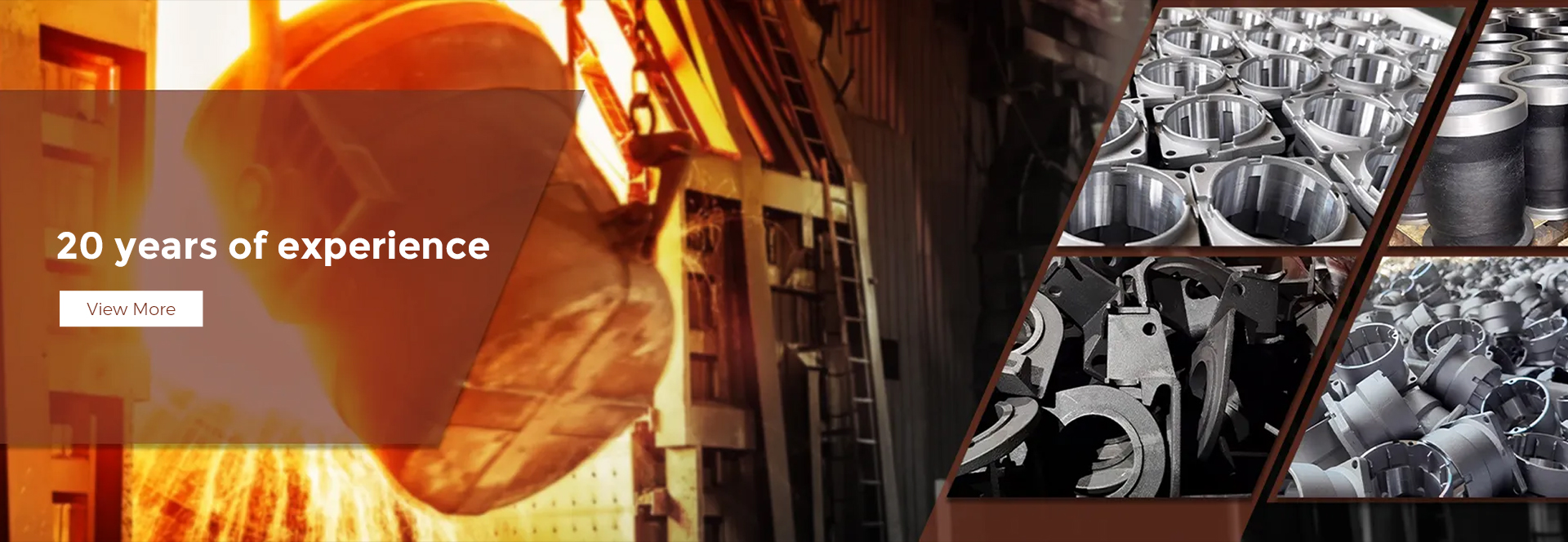Mobile:+86-311-808-126-83
Email:info@ydcastings.com
German
Heat Treatment Processes for Aluminum Casting Enhancing Strength and Durability
Aluminum Casting Heat Treatment A Gateway to Enhanced Performance
Aluminum, known for its lightweight and corrosion-resistant properties, is a popular choice in various industries, particularly in automotive, aerospace, and consumer goods. However, the performance of aluminum casting can be significantly enhanced through heat treatment. Heat treatment processes alter the mechanical properties of aluminum, improving its strength, durability, and overall performance.
Understanding Aluminum Casting
Aluminum casting involves pouring molten aluminum into a mold to create desired shapes. This process is widely utilized due to its versatility and cost-effectiveness. Cast aluminum components are lightweight and have excellent corrosion resistance, making them suitable for diverse applications. However, as-cast aluminum alloys can exhibit variable mechanical properties, which may not meet the stringent requirements of high-performance applications.
The Role of Heat Treatment
Heat treatment is a critical process that improves the mechanical properties of aluminum castings. The main objectives of heat treatment include enhancing strength, ductility, and fatigue resistance. The process typically involves three stages solution heat treatment, quenching, and aging.
1. Solution Heat Treatment This initial stage involves heating the aluminum casting to a specific temperature, usually between 450°C and 550°C, depending on the alloy used. At this elevated temperature, the alloying elements dissolve into the aluminum matrix. The casting is held at this temperature for a certain period to ensure uniformity. This process allows for the elimination of casting defects and promotes the formation of a homogeneous microstructure.
2. Quenching After solution heat treatment, the casting is rapidly cooled, often using water or oil. Quenching locks the microstructure in place, preventing the dissolved alloying elements from precipitating out. This rapid cooling creates a supersaturated solid solution, which significantly increases the strength of the aluminum alloy.
aluminum casting heat treatment

3. Aging The final stage, aging, can occur naturally at room temperature or artificially at elevated temperatures. During aging, the supersaturated solution gradually precipitates excess alloying elements, leading to the formation of finely dispersed particles within the aluminum matrix. These precipitates obstruct dislocation movement, contributing to increased strength. Aging times and temperatures vary based on the specific aluminum alloy, as well as desired mechanical properties.
Benefits of Heat Treatment
The heat treatment process enhances the mechanical characteristics of aluminum castings significantly. One of the most notable benefits is the increase in tensile strength, which can be improved by up to 50% or more depending on the alloy and treatment specifics. This enhancement makes heat-treated aluminum suitable for demanding applications where strength and reliability are paramount.
Additionally, heat treatment improves the fatigue resistance of aluminum castings. Components subjected to cyclic loading, such as those found in automotive and aerospace applications, benefit greatly from this improvement. Enhanced fatigue resistance translates to longer service life and reduced maintenance costs.
Finally, heat-treated aluminum castings exhibit superior dimensional stability. The controlled processes of solution heat treatment and aging minimize the risk of distortion, ensuring that components maintain their intended shapes and tolerances during and after treatment.
Conclusion
In summary, heat treatment is an essential process that unlocks the full potential of aluminum castings. By carefully controlling the steps of solution heat treatment, quenching, and aging, manufacturers can significantly enhance the strength, durability, and overall performance of aluminum components. As industries continue to seek lightweight and high-performance materials, understanding and implementing effective heat treatment strategies will be vital in maximizing the benefits of aluminum casting technology. This enhanced performance not only meets modern engineering demands but also contributes to more efficient and sustainable product designs across various sectors.











